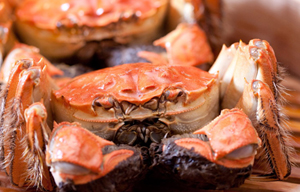Seafood lovers can help to save coral reefs
Seafood lovers can play a crucial role in deciding the fate of the world's coral reefs, according to a leading marine scientist reported by scinews.com.au.
Seafood consumption is a major driver of overfishing and destruction of reef communities globally - but there are some encouraging signs that consumers may be willing to eat more sustainably, according to Dr Mike Fabinyi, a researcher at the ARC Centre of Excellence for Coral Reef Studies in Australia.
Dr Fabinyi has been investigating consumer and food industry views and trends in the world's largest seafood market – China.
"In general, seafood markets are one of the primary drivers of change in marine ecosystems and can cause declines in fisheries stocks at both local and global scales," he said. "Chinese consumption of imported seafood has been linked to stock declines for certain fish species throughout the Asia-Pacific. This demand is so strong it often overwhelms any conservation or fisheries management measures that may be in place."
However when Dr Fabinyi and his colleague Professor Neng Liu from Peking University began to investigate the banqueting habits of Beijing's seafood gourmets and chefs, a much more complex picture emerged which holds some promise that the pressure on the world's dwindling reef fish could be eased.
"Fresh steamed reef fish form a central feature of many Beijing banquets, which are a prestigious element in both government and business dealings. These banquets have helped raise the popularity of fish consumption greatly in recent years. As a rule, consumption of fresh fish has gone up, while consumption of shark's fin has fallen."
However, recent government regulations to reduce lavish spending by government officials have led to a reduction in seafood banquets by as much as 35 percent, and a consequent reduction in high-end seafood demand in general.
The researchers also found that while Chinese consumers are not very conscious of the environmental impact of their eating habits, they are also flexible – and in many cases are not aware whether the fish they eat is wild-caught or farmed.
Consumption of shark fin, a traditional Chinese delicacy, has been declining in recent years, Dr Fabinyi says – due to a range of influences, including environmental awareness campaigns featuring well-known celebrities, increasing numbers of 'fake' shark fin, consumer health concerns and a recent government crackdown on luxury banquets.
"Sea cucumbers, on the other hand, are increasingly popular, and are a part of traditional Chinese medicine. In Beijing, the species of sea cucumber that are consumed mostly come from aquaculture farms, rather than wild harvests."
The researchers found that most restaurant managers in Beijing are not generally aware where the fish they serve comes from, and the traceability of seafood is low. They also found that while environmental awareness has had some impact in the decline of consumption of shark fin, consumers are more likely to be influenced by arguments relating to consumer health, safety and freshness.
"For example, if consumers were more aware of potential health issues surrounding the import of highly-prized endangered fish like Napoleon wrasse and other live reef food fish, they may be less willing to eat it," he said.
While the researchers found that consumers consider live reef food fish to be 'fresh' because they are still alive in the restaurant, many live reef food fish are originally caught with cyanide, are grown out in poorly maintained fish cages, and are injected with heavy doses of antibiotics and tranquilizers during their journey from tropical countries to China.
"How the Chinese seafood market develops in years to come is an issue that has huge implications for the livelihoods and environments of source countries throughout the world, and the future of global fish stocks.
"This is a big challenge for policymakers who are trying to protect the world's ocean resources – and the attitudes of consumers and restaurant owners will be a key factor," he added.
























